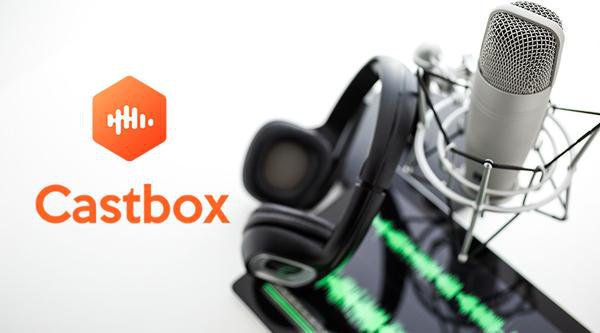Podcast Platform Castbox Launches Blockchain Project to Reward Creators

Award-winning global podcast platform Castbox has announced the release of ContentBox, a blockchain-based infrastructure for decentralized digital content. The project is backed by Bo Shen — the founder of Fenbushi Capital and an early adopter of Ethereum — who will serve as both a cornerstone investor and strategic advisor to the team.
Shen said, “The nature of blockchain technology is to take a slice of the pie from vested interest groups, where you are bound to encounter resistance. To get your project off the ground, you must have vast industry and product resources. I invested in ContentBox because it has a strong technical team and a wealth of industry experience, and I believe it will become the first killer app for the digital content industry.”
Founded two years ago by former Google manager Renee Wang, Castbox allows listeners to find, access and create spoken audio content in multiple languages through virtually any device. The company’s proprietary technology includes in-audio deep search so listeners can customize their audio experiences, and curated podcast recommendations powered by natural language processing (NLP) and machine learning. With over 16 million users in 175 countries, the company has raised roughly $30 million in funding from top venture capital firms like ZhenFund, SIG China and IDG.
Since the days of Napster’s inception, audio content publishers and creators have fought over who should have control in how content is monetized and distributed. Speaking with Bitcoin Magazine, Castbox representative Mark Lee says that the creation of ContentBox was inspired by the ongoing fight against copyright infringement and piracy in the digital content arena.
“Independent creators and publishers are under attack from all sides,” he said. “Take YouTube as an example. There was once a time when the platform democratized the creation and distribution of user-generated videos. Creators that produced great content were rewarded accordingly, and YouTube quickly became a major player in the entertainment industry.”
More than a decade later, smaller, independent creators are struggling to make a living, he noted.
“They pour their hearts and souls into their work, but these big platforms have taken full control over the way content is handled, leaving the average creator with little to no income, and virtually no ownership over their content. This issue is rampant across all major content platforms. Publishers face the same challenge, as more and more of their content is shared and consumed on third-party channels like Facebook.”
Wang says that the digital media industry was originally built on principles of inclusivity, but that it has also become too top heavy to support independent publishers and creators. In addition, most advertising revenue winds up in the hands of major studios instead of the creators, where it belongs.
She says the blockchain can solve this problem by removing middlemen and high transaction fees, while also introducing new streams of revenue like activity-based income (i.e. creators are paid when someone listens to their content) and subscriptions.
“The digital content industry has remained relatively opaque over the years regarding paid media, and advertisers typically rely on vanity metrics like impressions to determine returns on investments (ROIs),” said Lee.
He suggested that the blockchain can allow advertisers to tap into shared statistics and pay via advertisement viewership automated by smart contracts.
“By decentralizing the podcast industry with a shared content pool, a shared user pool and a unified payout system, this new project creates an open source community that can’t be controlled by a few industry giants.”
This is where ContentBox comes in. The system provides listeners with an array of blockchain-based solutions that power a unified payout system for the digital content arena. Users can access content by paying with digital tokens through what’s known as BOX Payout, a secure and borderless payment transaction network.
“The base asset of ContentBox are BOX tokens which are Ethereum-based and are standard ERC20,” said Wang. “There won’t be an ICO but there will be an airdrop. BOX tokens are the only way to transact within the app but they will be listed on a couple crypto exchanges by early July, so users will be able to cash out to Ether if desired.”
Users garner these tokens by sharing content with others, inviting friends and joining the company’s Telegram channel. They are also granted access to digital wallets that manage their rewards.
“Consumers engage in a wide variety of value-creating activities vital to the growth of the podcast community, like helping to share and create content, but are never financially rewarded,” said Lee. “Blockchain allows listeners to become stakeholders that get rewarded for their contributions. In turn, they can directly reward their favorite podcasters with the tokens they earn, or unlock premium content.”
This article originally appeared on Bitcoin Magazine.


